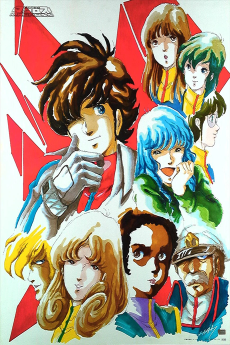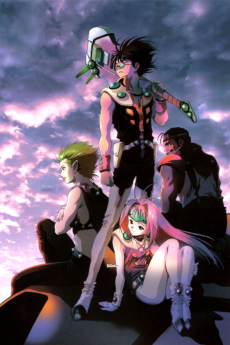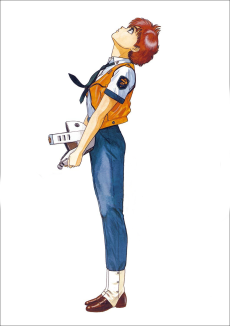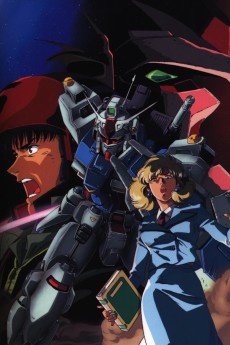MACROSS PLUS
STATUS
COMPLETE
EPISODES
4
RELEASE
June 25, 1995
LENGTH
39 min
DESCRIPTION
The year is 2040 and the galaxy is flourishing with several colonies and advanced technology. AI is near perfection and the current top idol is the near-completed Virturoid Idol Sharon Apple. All that is missing are her actual feelings, which instead are supplied by Myung Fang Lone. Sharon's debut concert is on planet Eden, where at the same time, fighter pilots Isamu Dyson and Guld Bowman battle over air superiority for the "Supernova Project." Isamu, Guld and Myung were once childhood friends, but after an accident seven years ago, they went their own separate ways. With Myung back in the picture, the old disputes are once again awakened. And when an unstable and illegal AI technique is installed in Sharon, the situation is worsened.
(Source: Anime News Network)
CAST
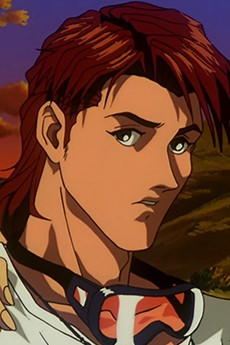
Isamu Dyson
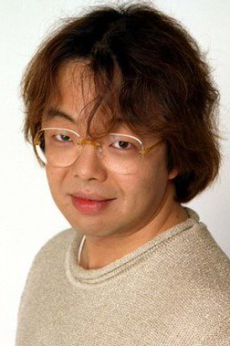
Takumi Yamazaki
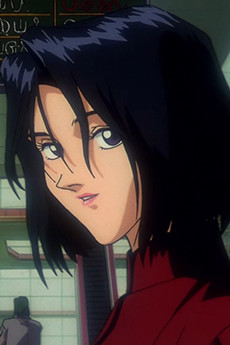
Myung Fang Long
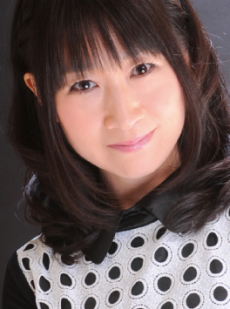
Rica Fukami
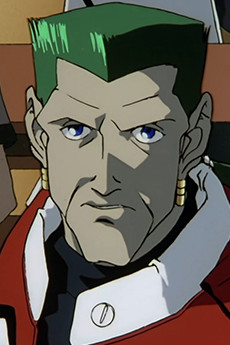
Guld Goa Bowman
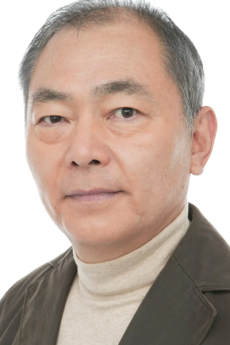
Unshou Ishizuka
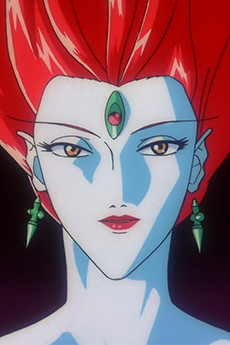
Sharon Apple
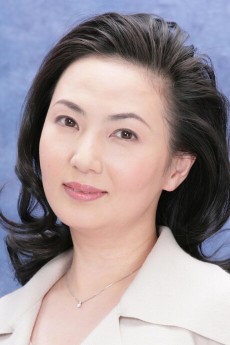
Mako Hyoudou
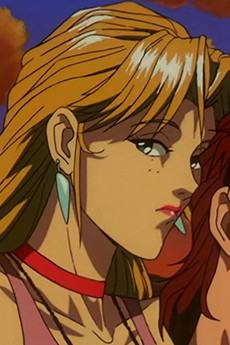
Lucy McMillan
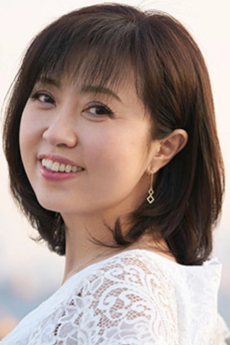
Megumi Hayashibara
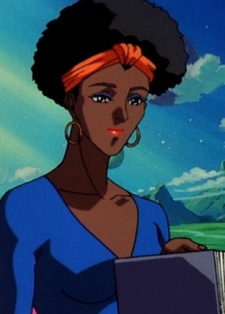
Kate Masseau

Urara Takano
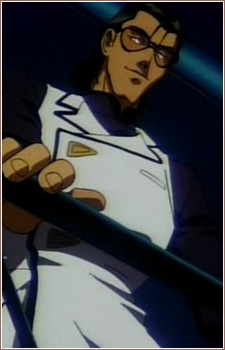
Marj Gueldoa
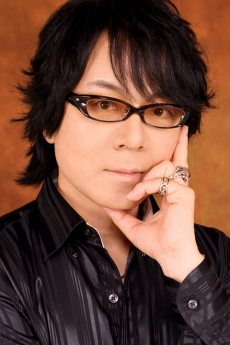
Shou Hayami

Millard Johnson
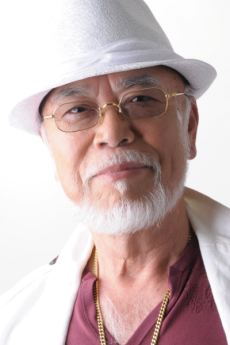
Kenji Utsumi
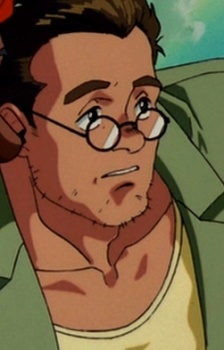
Morgan Masseau
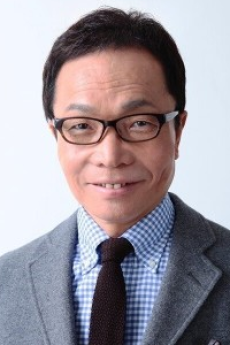
Yuusaku Yara

Yang Neumann
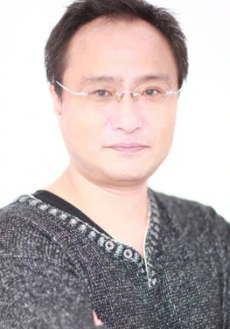
Tomohiro Nishimura
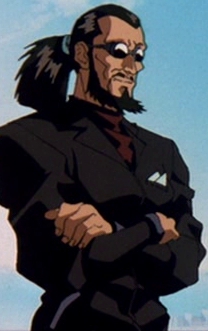
Reymond Marley
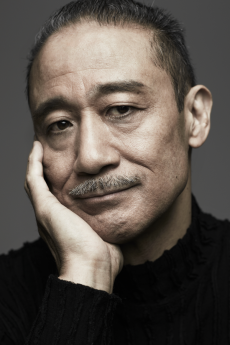
Banjou Ginga
EPISODES
Dubbed
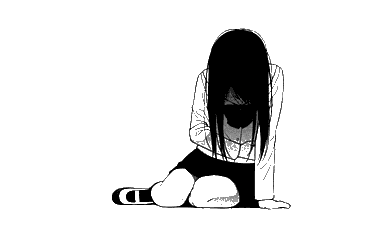
Not available on crunchyroll
RELATED TO MACROSS PLUS
REVIEWS

Pockeyramune919
84/100Macross Plus flies high as a stunning addition to the sagaContinue on AniList[
 ](https://anilist.co/review/7384)
](https://anilist.co/review/7384)
[
 ](https://anilist.co/review/10858)
](https://anilist.co/review/10858)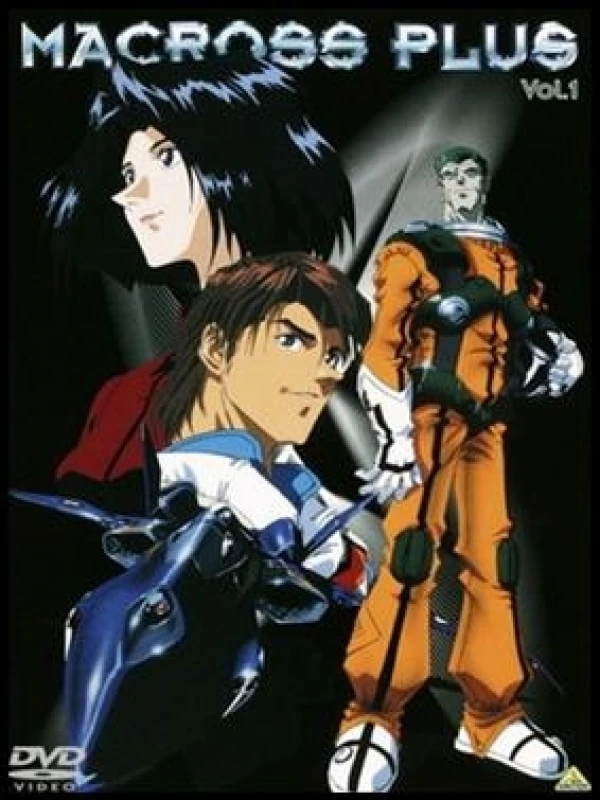 With love in our hearts and music in our ears, we take to the skies once more. This time, we’re flying to 1994’s _Macross Plus_. Much like its predecessor, _Macross II_, I knew next to nothing about this anime. The only thing I knew was that this was seen as “good” compared to *II*’s “bad.” As one person stated, if *II* was indicative of everything wrong with the OVA craze of the late eighties and early nineties, *Plus* was everything right with it. The “why” alluded me. Fortunately, it didn’t allude me for long; as I watched *Macross Plus* less than a week after finishing *II*.
There can be a bit of pride in liking the kitschy and I was ready to take *Macross II* as my next pet project to defend. I was ready to like it more than *Plus*.
That proved nigh-impossible.
In my byline, I said that *Macross II* had heart, but no brains. Meanwhile, *Macross Plus* struts across the stage garbed in a cap & gown, proudly holding its MFA while wearing a wide grin. As if to show its older sister up, *Macross Plus* is hypercompetent in almost every regard.
If I was the type to research staff before watching things, this wouldn’t have come as a surprise. While co-director Shinichirō Watanabe obviously [hasn’t produced anything of note](https://anilist.co/anime/1/Cowboy-Bebop), series composer Yoko Kanno is a musical genius who’s had great examples of her work in shows such as _Cowboy Bebop_ and _[Turn A Gundam](https://anilist.co/review/5663)_. Additionally, those unenthused at his absence in *II* can rejoice at the return of series creator, Shōji Kawamori.
With love in our hearts and music in our ears, we take to the skies once more. This time, we’re flying to 1994’s _Macross Plus_. Much like its predecessor, _Macross II_, I knew next to nothing about this anime. The only thing I knew was that this was seen as “good” compared to *II*’s “bad.” As one person stated, if *II* was indicative of everything wrong with the OVA craze of the late eighties and early nineties, *Plus* was everything right with it. The “why” alluded me. Fortunately, it didn’t allude me for long; as I watched *Macross Plus* less than a week after finishing *II*.
There can be a bit of pride in liking the kitschy and I was ready to take *Macross II* as my next pet project to defend. I was ready to like it more than *Plus*.
That proved nigh-impossible.
In my byline, I said that *Macross II* had heart, but no brains. Meanwhile, *Macross Plus* struts across the stage garbed in a cap & gown, proudly holding its MFA while wearing a wide grin. As if to show its older sister up, *Macross Plus* is hypercompetent in almost every regard.
If I was the type to research staff before watching things, this wouldn’t have come as a surprise. While co-director Shinichirō Watanabe obviously [hasn’t produced anything of note](https://anilist.co/anime/1/Cowboy-Bebop), series composer Yoko Kanno is a musical genius who’s had great examples of her work in shows such as _Cowboy Bebop_ and _[Turn A Gundam](https://anilist.co/review/5663)_. Additionally, those unenthused at his absence in *II* can rejoice at the return of series creator, Shōji Kawamori.
 *Macross Plus* follows the hotshot Isamu Alva Dyson and the taciturn Guld Goa Bowman as they both serve as test pilots for U.N. Spacy’s test variable fighters, the YF-19 and the YF-21. The two have a history that’s culminated in a bitter rivalry, a fact that’s palpable to everyone on the base. Myung Fang Lone, a childhood friend and love interest to both, soon visits the planet, further inflaming their rivalry. Myung is publicly simply the manager of virtual idol, Sharon Apple. In reality, she provides the emotions for Sharon. Once she reunites with Isamu and Guld, her emotions begin overwhelming her and Sharon begins to morph as a result…
And no, you didn’t miss anything. There’s no alien invasion to deal with and we don’t follow a war of epic proportions. U.N. Spacy’s [Forever War](https://tvtropes.org/pmwiki/pmwiki.php/Main/ForeverWar) is put on the back burner. All of this makes it clear that *Macross Plus* is a more personal entry in the saga. While the conflict grows during the final episode when Sharon Apple goes full rogue AI, for the most part, it’s on an individual character level. This is certainly a different Macross than we’re used to in many ways, but it is by no means a *bad* Maross. While *II* seemed to try to buck against the confines of the OVA, *Plus* strips itself down to the essentials so it can work *with* its format. While the premise doesn’t sound as exciting as *II*’s, its seemingly simple exterior belies a lot of depth that *II* sacrificed in the interest of breadth.
Every aspect of *Macross II* is crafted to create a particular feel and tone, creating an extremely cohesive whole.
To demonstrate, allow me to talk about an aspect of anime I seldom reference: the title. _Super Dimensional Fortress Macross_ and _Super Dimensional Fortress Macross II: Lovers Again_, are both mouthfuls. *Macross Plus*, meanwhile, is crisp, signalling that it’s shed off the bells and whistles that’s adorned its predecessors. There’s something sleek and futuristic about it. I also can’t help but feel that the lack of a subtitle was deliberate, or alternatively, that *II*’s *use* of its subtitle was deliberate. As a title, _Macross II: Lover’s Again_ functionally serves to emulate *Macross: Do you Remember Love*. It uses this association as a crutch, simply thinking that the allusion to Hikaru/Minmay/[Kaifun](https://www.clipartkey.com/mpngs/m/320-3207721_transparent-background-sick-emoji-png.png)/Misa would be enough, failing to actually develop its own relationship dynamics. *Macross Plus* seems to say that it doesn’t need the connection, it doesn't need to bank on the success of yesteryear to validate itself. Even if it’s going to share some elements with its predecessors, it’s going to bring something new to the table. Finally, there’s the *Plus*, which is a lot more bold than you may think. There’s not much of a statement to be made when you name a sequel “2” or “3.” All you’re doing is signifying that it’s sequential. To call yourself “Plus” is something else entirely,signifying that you’re not just after, but that you’re greater.
*Macross Plus* follows the hotshot Isamu Alva Dyson and the taciturn Guld Goa Bowman as they both serve as test pilots for U.N. Spacy’s test variable fighters, the YF-19 and the YF-21. The two have a history that’s culminated in a bitter rivalry, a fact that’s palpable to everyone on the base. Myung Fang Lone, a childhood friend and love interest to both, soon visits the planet, further inflaming their rivalry. Myung is publicly simply the manager of virtual idol, Sharon Apple. In reality, she provides the emotions for Sharon. Once she reunites with Isamu and Guld, her emotions begin overwhelming her and Sharon begins to morph as a result…
And no, you didn’t miss anything. There’s no alien invasion to deal with and we don’t follow a war of epic proportions. U.N. Spacy’s [Forever War](https://tvtropes.org/pmwiki/pmwiki.php/Main/ForeverWar) is put on the back burner. All of this makes it clear that *Macross Plus* is a more personal entry in the saga. While the conflict grows during the final episode when Sharon Apple goes full rogue AI, for the most part, it’s on an individual character level. This is certainly a different Macross than we’re used to in many ways, but it is by no means a *bad* Maross. While *II* seemed to try to buck against the confines of the OVA, *Plus* strips itself down to the essentials so it can work *with* its format. While the premise doesn’t sound as exciting as *II*’s, its seemingly simple exterior belies a lot of depth that *II* sacrificed in the interest of breadth.
Every aspect of *Macross II* is crafted to create a particular feel and tone, creating an extremely cohesive whole.
To demonstrate, allow me to talk about an aspect of anime I seldom reference: the title. _Super Dimensional Fortress Macross_ and _Super Dimensional Fortress Macross II: Lovers Again_, are both mouthfuls. *Macross Plus*, meanwhile, is crisp, signalling that it’s shed off the bells and whistles that’s adorned its predecessors. There’s something sleek and futuristic about it. I also can’t help but feel that the lack of a subtitle was deliberate, or alternatively, that *II*’s *use* of its subtitle was deliberate. As a title, _Macross II: Lover’s Again_ functionally serves to emulate *Macross: Do you Remember Love*. It uses this association as a crutch, simply thinking that the allusion to Hikaru/Minmay/[Kaifun](https://www.clipartkey.com/mpngs/m/320-3207721_transparent-background-sick-emoji-png.png)/Misa would be enough, failing to actually develop its own relationship dynamics. *Macross Plus* seems to say that it doesn’t need the connection, it doesn't need to bank on the success of yesteryear to validate itself. Even if it’s going to share some elements with its predecessors, it’s going to bring something new to the table. Finally, there’s the *Plus*, which is a lot more bold than you may think. There’s not much of a statement to be made when you name a sequel “2” or “3.” All you’re doing is signifying that it’s sequential. To call yourself “Plus” is something else entirely,signifying that you’re not just after, but that you’re greater.
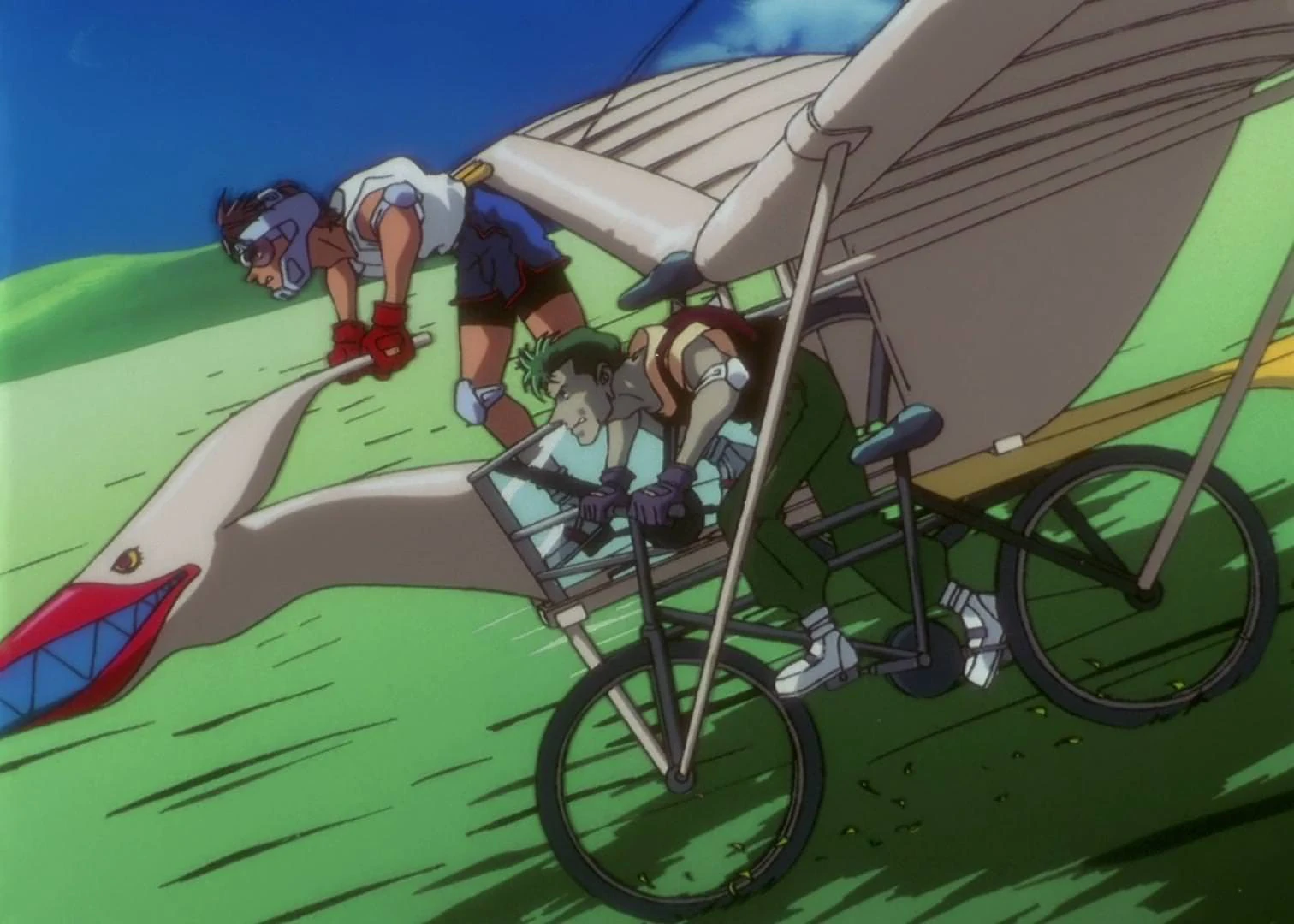 The biggest fault I can lodge against *Macross Plus* is that I don’t like the character design. With chins and noses that can skewer you clean through, it can be a bit rough. When it’s good, it has a more grounded look that’s divorced from its predecessors, but I just don’t really like it as much as the stylized look of *SDF Macross* and *II*.
A better art-related indication in the shift of tone is in the poster art. The covers that I’ve found look much more bare than those of its predecessors. Gone are the warm, inviting illustrations of Haruhiko Mikimoto. Now, you typically get a no-nonsense shot of the principle characters against a black background. It’s almost as if the creators are saying that this isn’t a fairy-tale; it’s the future and it’s cold. If it's not this, it's Isamu raising his arms to the heavens above while he's earth-bound.
The biggest fault I can lodge against *Macross Plus* is that I don’t like the character design. With chins and noses that can skewer you clean through, it can be a bit rough. When it’s good, it has a more grounded look that’s divorced from its predecessors, but I just don’t really like it as much as the stylized look of *SDF Macross* and *II*.
A better art-related indication in the shift of tone is in the poster art. The covers that I’ve found look much more bare than those of its predecessors. Gone are the warm, inviting illustrations of Haruhiko Mikimoto. Now, you typically get a no-nonsense shot of the principle characters against a black background. It’s almost as if the creators are saying that this isn’t a fairy-tale; it’s the future and it’s cold. If it's not this, it's Isamu raising his arms to the heavens above while he's earth-bound.
 My ambivalence regarding the character-design is more than made up with the mech design and animation. For the first time, I care about the protagonist’s mechs. The YF-19 and YF-21 are absolutely beautiful machines whether they’re in plane or mech mode. It goes without saying, but I’d absolutely love to get my hands on model kits for the both of them. The animation is really a sight to behold._Macross Plus_’ animation makes *II*’s look like garbage in comparison and makes *Super Dimensional Fortress Macross* look downright fecal. One word I'd use to describe the battles is "fluid." They felt a lot more impactful and immersive, as if I was right there, whether doing death-defying tricks in the sky or slugging it out on the ground. More than anything, I could actually track the fights unlike earlier entries where things quickly turned busy and messy. Then there's the VR concerts which are trippy, mesmirzing and may be unlike anything you've viewed before. I don't really use this word often, but it's quite "Aesthetic" and reminds me of that subset of futurism. _Macross Plus’_ animation is sure to take your breath away.
My ambivalence regarding the character-design is more than made up with the mech design and animation. For the first time, I care about the protagonist’s mechs. The YF-19 and YF-21 are absolutely beautiful machines whether they’re in plane or mech mode. It goes without saying, but I’d absolutely love to get my hands on model kits for the both of them. The animation is really a sight to behold._Macross Plus_’ animation makes *II*’s look like garbage in comparison and makes *Super Dimensional Fortress Macross* look downright fecal. One word I'd use to describe the battles is "fluid." They felt a lot more impactful and immersive, as if I was right there, whether doing death-defying tricks in the sky or slugging it out on the ground. More than anything, I could actually track the fights unlike earlier entries where things quickly turned busy and messy. Then there's the VR concerts which are trippy, mesmirzing and may be unlike anything you've viewed before. I don't really use this word often, but it's quite "Aesthetic" and reminds me of that subset of futurism. _Macross Plus’_ animation is sure to take your breath away.
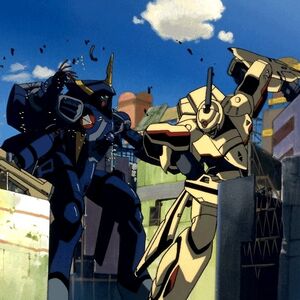 For me,_Macross Plus’_ greatest strength is its music.. It’s different from what we’ve heard before, but I really like it. Yoko Kanno really shows off her experimental chops in some of the tracks and it pays off in an OST that’s really unique in terms of anime. The OST’s contribution to the tone of the OVA can be seen if we compare the “main themes” of *Super Dimensional Fortress Macross,* and *Lovers Again* to *Plus*’ main theme, Voices.
“Macross” is bombastic and swelling, signifying the epic, emotional story that it’s attached to. Meanwhile, Yakusoku is hopeful and poppy, fitting the heartful, but ultimately shallow _Macross II_. Voices, meanwhile, is a beautiful, yet somewhat haunting track. The OST often carries feelings of foreboding, or at the very least, melancholy and “Voices” is no different. I love its eclectic and ethereal composition, again, a perfect taste of the OST as a whole. That’s not even getting into Voice’s lyrics which are much more solemn than the other two examples.
A really nice touch is that, in *Plus*, Yoko Kanno’s made up language is stated to be Zentraedi. I’m liable to gush about the OST for a while, so I’ll just leave a few examples: [Torch Song](https://www.youtube.com/watch?v=utRMN4Qh8Yc&t=211s), [Information High](https://www.youtube.com/watch?v=l8RqB5RBQ0A&), [Santi-U](https://www.youtube.com/watch?v=EyyN6-yD-tI&).
I only watched one episode dubbed, but from what I saw the voices were fine (except for Kate’s). Most of the music is still in its original language (be that Japanese, English, French, or Zentraedi), save for “Voices.” Rest assured that the English rendition is still quite good.
For me,_Macross Plus’_ greatest strength is its music.. It’s different from what we’ve heard before, but I really like it. Yoko Kanno really shows off her experimental chops in some of the tracks and it pays off in an OST that’s really unique in terms of anime. The OST’s contribution to the tone of the OVA can be seen if we compare the “main themes” of *Super Dimensional Fortress Macross,* and *Lovers Again* to *Plus*’ main theme, Voices.
“Macross” is bombastic and swelling, signifying the epic, emotional story that it’s attached to. Meanwhile, Yakusoku is hopeful and poppy, fitting the heartful, but ultimately shallow _Macross II_. Voices, meanwhile, is a beautiful, yet somewhat haunting track. The OST often carries feelings of foreboding, or at the very least, melancholy and “Voices” is no different. I love its eclectic and ethereal composition, again, a perfect taste of the OST as a whole. That’s not even getting into Voice’s lyrics which are much more solemn than the other two examples.
A really nice touch is that, in *Plus*, Yoko Kanno’s made up language is stated to be Zentraedi. I’m liable to gush about the OST for a while, so I’ll just leave a few examples: [Torch Song](https://www.youtube.com/watch?v=utRMN4Qh8Yc&t=211s), [Information High](https://www.youtube.com/watch?v=l8RqB5RBQ0A&), [Santi-U](https://www.youtube.com/watch?v=EyyN6-yD-tI&).
I only watched one episode dubbed, but from what I saw the voices were fine (except for Kate’s). Most of the music is still in its original language (be that Japanese, English, French, or Zentraedi), save for “Voices.” Rest assured that the English rendition is still quite good.
 The principal cast members are all great. The information we get of their backstory is a bit sparse, but they feel so realized and we’re given enough that we can connect the dots and draw our own conclusions about who they are. The sparseness also helps foster a low-key atmosphere. For a four episode OVA, we get a lot and I ended up caring about these characters and their struggles. I was afraid watching *Plus* would be like *Macross II* where I’d much prefer watching *Gundam SEED*, but I ended up being fully engaged thanks to the characters. They feel a lot more grounded, sadness and all, than the characters that came before in the series. They’re adults with real baggage; even Isamu who initially appears to be nothing more than a cookie-cutter fiery anime character. The manner in which the major event of their backstory is revealed was just brilliant. I will say that I wish Guld and Myung were handled a bit better. Myung’s existence seems to revolve around being one vector of a love triangle, and that even extends to her backstory. As for Guld, it’s pretty hard to feel sympathetic when it’s all but stated he was on the verge of sexually assaulting Myung years ago. Plus the bit about his Zentraedi heritage making him predisposed to violence carries a few unfortunate implications.
I’ve talked about theme/mood a few times, but what exactly is this? To me, there’s a sinister, creepy tinge that permeates through the film. I get [Perfect Blue](https://anilist.co/anime/437/Perfect-Blue/) and even some [Lain](https://anilist.co/anime/339/Serial-Experiments-Lain/) vibes from it. Maybe that’s just the trippy visuals and rogue AI, though. It seems that this Macross is committed to being realistic with all the pain that this entails. The love triangle here is markedly more messy than previous examples. It’s destructive, nigh-irrevocably ruining a friendship and turning a man into a monster. Here, idols aren’t a thing to be praised, but something to be feared as we are treated to a villainous singer who uses her abilities to chilling effect. That said, this movie is “dedicated to all future pioneers,” so I’d say that there’s a hopefulness to it, just tempered by the danger and loneliness that comes with the trade of being a pioneer. I wouldn’t go as far as to label this movie “dark,” but it’s certainly somber and reflective. As an Emo Sadboi™ who [went on a tangent about how much he desires realistic and somber works](https://anilist.co/review/6985), you know I gobbled this up.
The principal cast members are all great. The information we get of their backstory is a bit sparse, but they feel so realized and we’re given enough that we can connect the dots and draw our own conclusions about who they are. The sparseness also helps foster a low-key atmosphere. For a four episode OVA, we get a lot and I ended up caring about these characters and their struggles. I was afraid watching *Plus* would be like *Macross II* where I’d much prefer watching *Gundam SEED*, but I ended up being fully engaged thanks to the characters. They feel a lot more grounded, sadness and all, than the characters that came before in the series. They’re adults with real baggage; even Isamu who initially appears to be nothing more than a cookie-cutter fiery anime character. The manner in which the major event of their backstory is revealed was just brilliant. I will say that I wish Guld and Myung were handled a bit better. Myung’s existence seems to revolve around being one vector of a love triangle, and that even extends to her backstory. As for Guld, it’s pretty hard to feel sympathetic when it’s all but stated he was on the verge of sexually assaulting Myung years ago. Plus the bit about his Zentraedi heritage making him predisposed to violence carries a few unfortunate implications.
I’ve talked about theme/mood a few times, but what exactly is this? To me, there’s a sinister, creepy tinge that permeates through the film. I get [Perfect Blue](https://anilist.co/anime/437/Perfect-Blue/) and even some [Lain](https://anilist.co/anime/339/Serial-Experiments-Lain/) vibes from it. Maybe that’s just the trippy visuals and rogue AI, though. It seems that this Macross is committed to being realistic with all the pain that this entails. The love triangle here is markedly more messy than previous examples. It’s destructive, nigh-irrevocably ruining a friendship and turning a man into a monster. Here, idols aren’t a thing to be praised, but something to be feared as we are treated to a villainous singer who uses her abilities to chilling effect. That said, this movie is “dedicated to all future pioneers,” so I’d say that there’s a hopefulness to it, just tempered by the danger and loneliness that comes with the trade of being a pioneer. I wouldn’t go as far as to label this movie “dark,” but it’s certainly somber and reflective. As an Emo Sadboi™ who [went on a tangent about how much he desires realistic and somber works](https://anilist.co/review/6985), you know I gobbled this up.
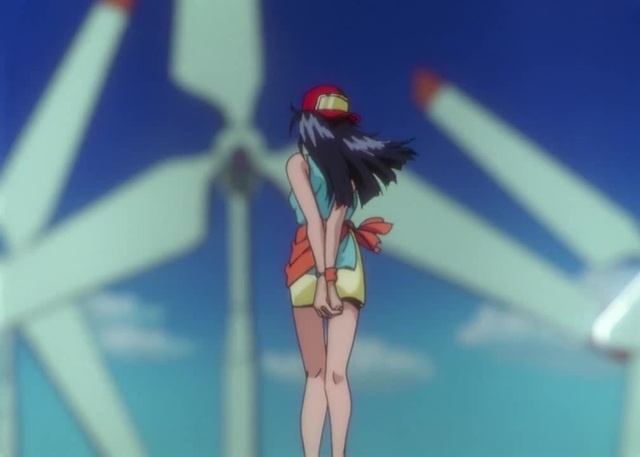 Laid in front of me are all the pieces of a nigh-perfect anime. Logically speaking, I should enjoy this immensely and give it a very high rating…
...and yet...
...I can’t. And I’m not exactly sure why. Perhaps _Lovers Again_ has the answer. I’ve spent the better part of two-thousand words dragging the poor movie through the mud, but it does have one thing that I think _Plus_ lacks. I’ve said that *II* lacks a brain but has heart. With that, the inverse should be obvious. Yet, I don’t want to out-and-out say it because it feels like too much of an insult towards *Plus*. Somehow, saying “you’re dumber than a sack of bricks, but you’re a good person” feels a lot nicer than “you’re an absolute genius, but you don’t have a soul.”
And assuming the latter is true, I can’t for the life of me tell you how it doesn’t. It just doesn't *feel* like Macross. Perhaps it’s the tone. Perhaps it’s the scope. But even if it doesn’t feel like what I come to expect from Macross, it *is* still Macross. I can appreciate its competency as well as its uniqueness.
I think it’s pretty telling that *Plus* was able to achieve so much in such a short time. There’s a lot of subtext and I’m not ashamed to admit the anime could be smarter than what I’m willing to casually analyze. Plus, I legitimately got emotional while re-watching the intro in light of everything that came after. _SDF Macross_ has the epicness and length, but this has the intimacy. I wish there was a way to combine the two, but personally, even if I’m not sure which I hold more dear in my heart, *Plus* has the clear technical edge.
Laid in front of me are all the pieces of a nigh-perfect anime. Logically speaking, I should enjoy this immensely and give it a very high rating…
...and yet...
...I can’t. And I’m not exactly sure why. Perhaps _Lovers Again_ has the answer. I’ve spent the better part of two-thousand words dragging the poor movie through the mud, but it does have one thing that I think _Plus_ lacks. I’ve said that *II* lacks a brain but has heart. With that, the inverse should be obvious. Yet, I don’t want to out-and-out say it because it feels like too much of an insult towards *Plus*. Somehow, saying “you’re dumber than a sack of bricks, but you’re a good person” feels a lot nicer than “you’re an absolute genius, but you don’t have a soul.”
And assuming the latter is true, I can’t for the life of me tell you how it doesn’t. It just doesn't *feel* like Macross. Perhaps it’s the tone. Perhaps it’s the scope. But even if it doesn’t feel like what I come to expect from Macross, it *is* still Macross. I can appreciate its competency as well as its uniqueness.
I think it’s pretty telling that *Plus* was able to achieve so much in such a short time. There’s a lot of subtext and I’m not ashamed to admit the anime could be smarter than what I’m willing to casually analyze. Plus, I legitimately got emotional while re-watching the intro in light of everything that came after. _SDF Macross_ has the epicness and length, but this has the intimacy. I wish there was a way to combine the two, but personally, even if I’m not sure which I hold more dear in my heart, *Plus* has the clear technical edge.
 I recommend *Macross Plus* to anyone who’s looking for a personal mecha OVA unlike any other. It truly is beautiful. While it’s a different beast than the original show, I implore fans of _Super Dimensional Fortress Macross_ to check this entry out. In fact, I’d say to watch _SDF_ *II* and *Plus* as a loose trilogy, as they’re very interesting to compare. I encourage newcomers to give this a shot, too, as it’s quite standalone, requiring next to no prior knowledge of Macross. I’m glad I decided to get off my ass and finally continue the Macross saga, as it meant I got to experience _Macross Plus_.
I recommend *Macross Plus* to anyone who’s looking for a personal mecha OVA unlike any other. It truly is beautiful. While it’s a different beast than the original show, I implore fans of _Super Dimensional Fortress Macross_ to check this entry out. In fact, I’d say to watch _SDF_ *II* and *Plus* as a loose trilogy, as they’re very interesting to compare. I encourage newcomers to give this a shot, too, as it’s quite standalone, requiring next to no prior knowledge of Macross. I’m glad I decided to get off my ass and finally continue the Macross saga, as it meant I got to experience _Macross Plus_.



bonnorcott
100/100An analysis of Macross Plus relative to its predecessor, and its clever use of musicContinue on AniListIt’s impossible for me to talk about any Macross entry without comment on its use and portrayal of music. Every single part of the series expands on some aspect of the original’s shockingly nuanced attitudes towards music as an art form and cultural touchstone. In Plus, this is achieved through a contrast between the music of Sharon Apple and the non-diegetic themes of our main human cast. In Macross, music is always an overwhelmingly powerful influential force, but one whose ethical use is always policed by the narrative. Sharon’s music is an irregularity in the canon of Macross, consisting primarily of electronic instrumentation and heavily processed vocals. Her performance is strange to match, mixing imagery of a holographic singer with more abstract depiction of the music, all in stark contrast to Minmay’s stage performances and traditional recordings. There’s a clear moral dilemma presented by this performance, a question of whether or not this kind of singer is natural, or even ethical. We’re presented with a look behind the curtain as we find out that Myung operates Sharon, and, while Sharon initially seems to have adoring fans, her audience in the concert seems almost unsettled at times, utterly enraptured but not cheering or singing along. The show wants to draw attention to this lack of participation, and how the experience is not a communal one, but one where all attention is on the alien allure of this spectacle. This suspicion is entirely justified when Sharon’s music becomes a literal tool of hypnosis later on, and forces the masses to listen to her song, purely for the purpose of manipulation. This music exists as a perversion of the emotions Sharon was exposed to from Myung, and only used to advance her own selfish desires. In the canon of Macross, music used as a tool of manipulation or control only begets violence. Minmay’s songs in SDF, initially a symbol of unity on the Macross and a revelation to the Zentradi, were misused by Earth’s military when the culture shock experienced by the Zentradi was exploited to wipe them out in the war. This misuse led to further violence between the two races, and ultimately a failure to colonise in the way that the UN wanted. In a similar way, Sharon was destined to fall in this narrative, as her music represented nothing but self-interested manipulation.
In stark contrast to this is the way in which Isamu and Guld’s conflict is scored, along with Myung’s theme and the credits theme of the OVA. Every dogfight is accompanied by bombastic pieces played by a symphony orchestra, completely lacking in the synthesised elements used in Sharon’s music. In short, every human in the series is scored with more human textures, creating a dichotomy with the “artificiality” of Sharon. The credits theme “After in the Dark” is also unique in this show, sung partially in English and partially in Zentradi, and with the audible cheers of a huge audience behind it. All three of these aspects represent what music “should be” in the world of Macross, a symbol of unity between the races it brought together, and an expression of ecstasy for huge groups of people, shouting and singing in unison. See Macross 7 for how this series throughline is explored even further! Myung’s main theme is a rearrangement of Myung’s in-universe song, “Voices”, a relic of the time when she had a public passion for singing while friends with Isamu and Guld in high school. Two versions of this song appear in the show, one accompanied by synthesised backing, and one with an acoustic backing. The former shows how Myung now hides her passion behind the persona of Sharon Apple, a real human voice behind the digital avatar, but towards the end, Myung learns to better accept this part of her past, and a version plays accompanied by live instruments. A vital part of Myung’s growth is acknowledging this passion, and singing for herself rather than behind a public mask, similar to Minmay’s eventual character growth.
Plus deals primarily with the Earth left behind after SDF Macross, peaceful coexistence is long established with the Zentradi race, and Macross City is developed even further into a stunning technological utopia. SDF strongly established the ability of humanity to thrive and maintain populace and development in the face of disaster, and Plus shows us how humanity has thrived in a time of peace and colonisation. Macross City is at its most visually appealing here, with glimpses into neon city life and beautiful architecture, all alongside swathes of untouched countryside dotted by windmills and clean sources of energy. If ever there was a futuristic anime setting I personally would want to live in, Macross City is likely it. Huge efforts are put into making this city feel like a true technological utopia, powered by clean energy, surrounded by untouched country, and full of detail and technological conveniences. Wisely, the series does not just leave us in some ecomodernist hole where this advancement is unequivocally a good thing, but rather we have an exploration of how this technology can be misused in the wrong hands, and an emphasis on the importance of individuals and open communication. The military see the advancement of AI technology as a potential replacement for pilots like Isamu and Guld, and through both a disaster with Sharon, and the heroism grown out of rivalry between the two pilots, they are proven wrong.
The antagonism between Isamu and Guld is a key part of the show and its relation to the previous Macross entry. In a world post-SDF, a hotshot pilot like Isamu isn’t regarded as a necessary or desired by the military, with Guld’s usually calm disposition seeming to surpass Isamu. Plus presents us with something new in Macross, a Zentradi character actively striving to maintain a rational and collected demeanour, knowing that humans still hold a bias against his race for their warlike origins and background. As such, Guld actively represses his anger at Isamu over a jealous assault towards Myung from their youth. This clear suppression of emotions sets up the final reveal that Guld was the one who assaulted Myung, and buried the memory out of shame for succumbing to rage and attacking a friend. He assigned the blame instead to the ostensibly “immature” and impetuous Isamu. This ties these characters’ dynamic to a theme present in SDF, that of “failed maturity”. Where Misa and Hikaru represented teenagers attempting and failing to form adult relationships, Plus gives us a cast of adults who can’t let go of childish memories of the past. Isamu and Myung kept the truth from Guld for years, while the memory simmered under the surface, even when apart for years. The show wants to express that this isn’t the adult relationship the three think they’ve achieved, but one that leads to rage and violence, and in this case even spawned the malevolence within Sharon Apple. These issues could only be solved by honest discussion, and none open up until Isamu and Guld are faced with death. Their endless posturing and aggression makes them childish regardless of age. Similarly, Myung abandoned singing as just another misguided childhood dream, without realising the real power behind her singing. Again, her attempts to be more mature actually prevented her from growing.
The last thing to add here is an acknowledgement that Plus stands alone in many respects among the sequels, something that can likely be attributed to a very new creative team leading this project, one that would go on from here to gain a hugely widespread reputation on other projects. Macross Plus is the directorial debut of Shinichirou Watanabe, as well as the first anime he worked on with Keiko Nobumoto as scriptwriter, and Yoko Kanno as composer. This is the same team that would go on to work in the same roles on Cowboy Bebop and Wolf’s Rain, among other works attributed to Watanabe, and Plus is the genesis of their work together. This is also the first anime Kanno composed alongside vocalist Mai Yamane, who appears on many of her later soundtracks. Plus is an incredible achievement for this team’s first effort, and in my opinion a vital piece to watch for fans of their other work.
SIMILAR ANIMES YOU MAY LIKE
 ANIME ActionCowboy Bebop
ANIME ActionCowboy Bebop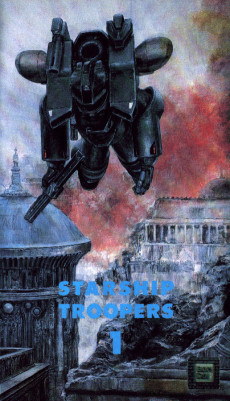 OVA MechaUchuu no Senshi
OVA MechaUchuu no Senshi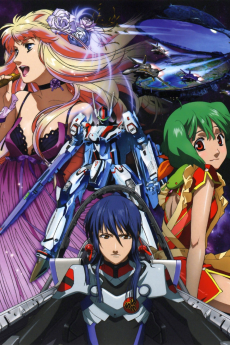 ANIME ActionMacross Frontier
ANIME ActionMacross Frontier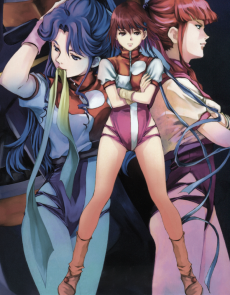 OVA ActionTop wo Nerae! GunBuster
OVA ActionTop wo Nerae! GunBuster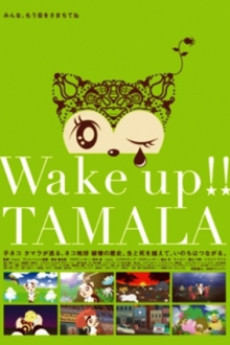 MOVIE FantasyWake up!! TAMALA
MOVIE FantasyWake up!! TAMALA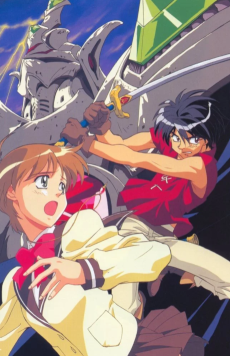 ANIME AdventureTenkuu no Escaflowne
ANIME AdventureTenkuu no Escaflowne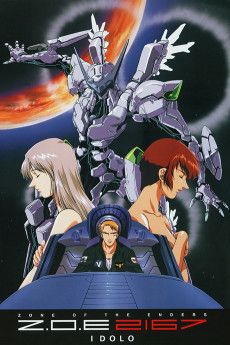 OVA ActionZ.O.E 2167 IDOLO
OVA ActionZ.O.E 2167 IDOLO ANIME DramaOnii-sama e...
ANIME DramaOnii-sama e...
SCORE
- (3.7/5)
MORE INFO
Ended inJune 25, 1995
Main Studio Triangle Staff
Favorited by 307 Users


